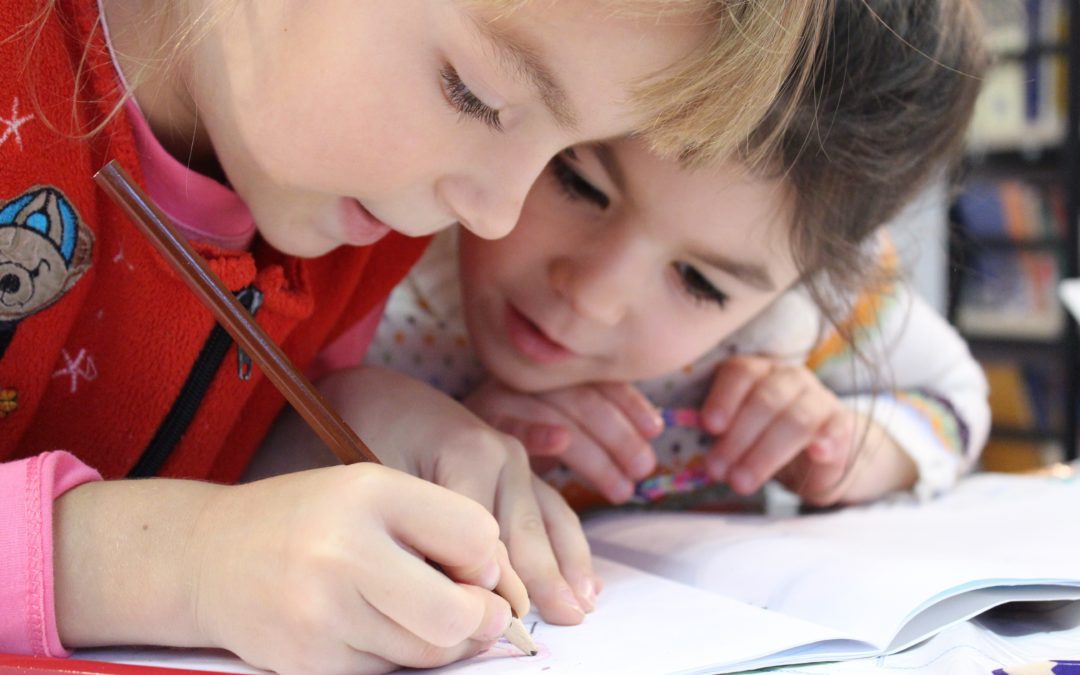As the parents of six boys, all of whom we homeschooled from grade school until high school, my wife and I know a thing or two about teaching kids at home. Those who have always sent their kids to public or private schools got a taste of what homeschooling would be like during the recent epidemic, and many are still unsure whether or not their kids will be able to go back to traditional schools in the fall. Whether you’ll be homeschooling by choice or necessity this fall, here are some tips that should make the experience better for everyone involved.
1. Don’t Try to Recreate a Traditional Setting
You’ve likely realized while working at home with a spouse during the pandemic that recreating your traditional office setting in your house just doesn’t cut it. The same is true for homeschooling. There’s no reason why you need a full room with a whiteboard and rows and desks and you don’t need specific periods to focus on certain subjects. The best setup for your homeschooling environment is the one that works for your family. If your kids learn best lounging on the couch, let them lounge on the couch. Trying to force them into your image of the ‘ideal classroom’ is only going to set unreasonable expectations and lead to disappointment.
You can be extremely creative with your homeschooling if you choose to. I was an entrepreneur while teaching my kids so our family had a lot of flexibility. Instead of teaching them about the Lewis and Clark expedition, we rented a camper and followed the trail ourselves. You have a lot of opportunities with homeschooling that just aren’t possible in a traditional situation. Take advantage of them!
2. Have a Purpose
To truly be successful at homeschooling, you need to have a purpose for your kids’ education. My wife and I had the purpose of creating a lifelong love of learning in our children. For us, that meant that we didn’t need to necessarily teach them every subject in the book or ensure they could recite dates from history or solve complex algebra problems. Instead, we focused on creating an environment where our kids were free to be curious, pursued interests and subjects they enjoyed, and viewed education as a privilege rather than a chore. Before you begin your homeschooling journey – even if it is a temporary one – discuss with your spouse about your purpose and what it really is you want your kids to learn.
3. Don’t Underestimate the Importance of PE
Physical education doesn’t get the emphasis it should in traditional schools these days, and it can easily be completely forgotten when you homeschool. Kids need to play, let off steam, and be challenged physically. If you don’t incorporate PE into your program, your kids will be easily distracted or even disruptive. They also won’t get all the physical benefits of exercise and it could even affect their future coordination, flexibility, or cardiovascular health. When we were homeschooling our boys, we always gave them plenty of time to go outside and get exercise. We also gave them opportunities to participate in a variety of sports and other extracurricular activities. For kids to develop an affinity for anything, they have to be exposed to it first. Along with sports, we also exposed them to music, theatre, and the arts. These are just as important as traditional subjects like math and history.
4. Keep Pacing in Mind
Emotional agility makes you a better investor and it also makes you a better homeschooling parent. At some point during your homeschooling journey, you’ll realize that getting stuck on certain ideas or ‘shoulds’ holds everyone back. For example, if you believe school ‘should’ last from 8 am to 3:30 pm every day, you’ll likely give your kids a lot of unnecessary busy work to fill their days. Homeschooling can be done in a much shorter timeframe than traditional school because you’re only teaching your kids instead of an entire classroom. If you have some tendencies toward over-responsibility and think it’s your duty to keep at it for a pre-set amount of time, you’ll be doing your kids a disservice. Find a pace that works for you and your family and give up the idea that things have to go a certain way.
Homeschooling can be very fulfilling for both you and your children. My wife and I really enjoyed the years we spent teaching our kids at home and they’ve all gone on to become well-educated, responsible adults. Do you have questions about homeschooling on a temporary or permanent basis? Please leave them below!

